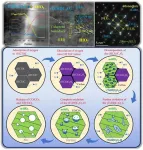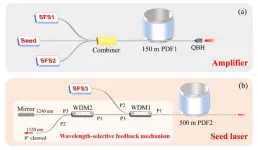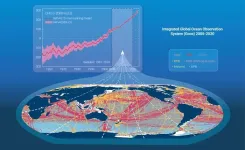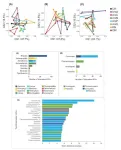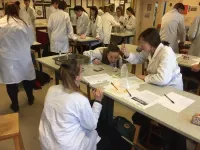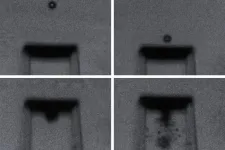Singapore, 30 January 2024 - A team of clinician-scientists and researchers from the National Cancer Centre Singapore (NCCS), Agency for Science, Technology and Research (A*STAR), the Harry Perkins Institute of Medical Research and global research partners, has found a causal link between the presence of oncofoetal ecosystems (re-emergence of foetal programme/features driven by the tumour) in the primary liver cancer hepatocellular carcinoma (HCC) and cancer recurrence and response to immunotherapy. These game-changing findings, which pave the way for the use of oncofoetal ecosystems as biomarkers to treat HCC, were recently published in Nature Cancer on 2 January 2024.
Liver cancer is the sixth most common cancer in the world and fourth most common cause of cancer deaths globally.[1] In Singapore, it is the third most common cause of cancer deaths in males and fifth most common cause in females[2]. HCC is usually diagnosed at a late stage, when prognosis is poor, highlighting a great clinical need to improve the understanding of HCC to better manage the disease.
An earlier breakthrough study[3], from the same research team, found that HCC cells adopt a foetal-like environment to escape immune surveillance and grow more aggressively. This provided novel insights into the processes that drive HCC development.
In their latest work published in Nature Cancer this year, the team built on their previous discovery and focused on understanding how the changes in the oncofoetal ecosystem, known as oncofoetal reprogramming, impacts HCC. Oncofoetal reprogramming causes the cancer cell environment in the liver to mimic certain aspects of cells in foetal development, leading to the suppression of the body’s immune system. The team compiled a single-cell atlas of 251,761 cells from over 80 donors with liver cancer and used advanced techniques, such as single-cell RNA sequencing and single-cell spatial transcriptomics, to analyse them. The team identified a cell called POSTN+ cancer-associated fibroblast to be central in this process.
Further analysis revealed that oncofoetal reprogramming is implicated in EMT (epithelial to mesenchymal transition—which typically makes cancer more aggressive) and tumour cell proliferation, ultimately playing a role in early recurrence and response to immunotherapy.
“Oncofoetal cells are very adaptable and behave like embryonic cells. They originate within the tissue surrounding tumours and provide a ‘fertile soil’ for ‘malignant seeds’. This is the reason that even after a tumour has been surgically removed, these cells remain and can lead to cancer recurrence. By analysing the microenvironment, which surrounds and nourishes the tumour, we found some patients have high levels of foetal-like cells. Their presence predicts the likelihood of recurrence,” said study co-senior author Professor Ankur Sharma, Lab Head of the Onco-Fetal Ecosystem Laboratory at the Harry Perkins Institute of Medical Research in Perth, Western Australia.
“This translational discovery based on basic research mapping the tumour microenvironment, not only provides us with a novel biomarker but, more importantly, offers a tangible solution to better treat HCC – a ray of hope for patients and a new direction for oncology,” said study co-senior Associate Professor Florent Ginhoux, Senior Principal Investigator, A*STAR’s Singapore Immunology Network (SIgN).
“We can now link the discovery of foetal-like reprogramming of the tumour ecosystem with a clinical outcome in HCC patients. This is very significant, as it opens promising opportunities to group early-stage HCC patients that have higher likelihood of early recurrence and improve their care management. It also presents the possibility of therapeutically targeting the cell-based signature in the tumour microenvironment with combined immunotherapy,” said study co-senior author Professor Pierce Chow, Senior Consultant Surgeon, Singapore General Hospital and NCCS and Professor, Duke-NUS Medical School.
Additionally, the team plans to investigate whether foetal POSTN+ cancer-associated fibroblasts are also presented in other cancers. Further clinical application of this study would be to develop a biomarker that shows response to combined immunotherapy.
This research is supported by the Singapore Ministry of Health’s National Medical Research Council under its Open Fund-Large Collaborative Grant (MOH-001067), Translational Research Investigator Award (TCR/015-NCC/2016), and by the Biomedical Research Council (BMRC) use-inspired basic research (UIBR) award and the National Research Foundation Singapore under its Singapore National Research Foundation Senior Investigatorship (NRF2016NRF-NRFI001-02). It is also supported by the National Health and Medical Research Council (NHMRC) Ideas Grant [2021/GNT2010795], Medical Research Future Fund (MRFF) Early to Mid-Career Researchers (EMCR) grant [2022/MRF2016215].
***
Study: Li, Z., Pai, R., Gupta, S. et al. Presence of onco-fetal neighborhoods in hepatocellular carcinoma is associated with relapse and response to immunotherapy. Nat Cancer (2024). https://doi.org/10.1038/s43018-023-00672-2
-END-
For media enquiries, please contact:
Dharshini Subbiah
National Cancer Centre Singapore
Corporate Communications
Email : dharshini.subbiah@nccs.com.sg
Sharmaine Loh
Agency for Science, Technology and Research (A*STAR)
Corporate Communications
Email: sharmaine_loh@hq.a-star.edu.sg
Mobile: 9862 1834
About the National Cancer Centre Singapore
The National Cancer Centre Singapore (NCCS) is a leading national and regional tertiary cancer centre with specialists who are experts in treating cancer. In addition to offering holistic and multidisciplinary oncology care, our clinicians and scientists collaborate with local and international partners to conduct robust, cutting-edge clinical and translational research. To achieve its vision of being a global leading cancer centre, NCCS offers world-class care and shares its depth of experience and expertise by training local and overseas medical professionals.
To meet growing healthcare needs, the new NCCS building opened in 2023 with increased capacity and expanded facilities dedicated to cancer care, rehabilitation, research and education. To give patients the best treatment outcomes, advanced and innovative treatment such as proton therapy is offered at the new Goh Cheng Liang Proton Therapy Centre at NCCS.
In 2024, NCCS celebrates its silver anniversary, celebrating 25 years of advancing cancer care from breakthroughs to healing.
For more information, please visit: www.nccs.com.sg
About A*STAR’s Singapore Immunology Network (SIgN)
The Singapore Immunology Network (SIgN) is a research consortium established in 2006 under the Agency for Science, Technology and Research (A*STAR)’s Biomedical Research Council. The mission of SIgN is to advance human translational immunology research, contribute scientific knowledge and make innovative discoveries in immune-based therapeutics and technologies so as to improve lives and further socio-economic growth. SIgN is home to ~150 researchers comprising renowned Principal Investigators, post-doctoral fellows and support staff working under the directorship of Professor Lam Kong Peng. SIgN also contributes to nurturing and retaining research talents to help build up the research ecosystem in Singapore.
SIgN research activities are broadly categorised into three main focus areas: Immuno-Oncology, Immune Potential, Regulation & Ageing and Immuno-Pathology. Our research groups are supported by a strong in-house cluster of cutting-edge technology platforms. Through partnership with hospitals and companies, SIgN is also committed to translate research findings into clinical and commercial applications. SIgN is working towards contributing to an enriching and vibrant research environment in Singapore.
For more information about SIgN, please visit www.a-star.edu.sg/sign.
Follow us on
Facebook | LinkedIn | X
About the Agency for Science, Technology and Research (A*STAR)
A*STAR is Singapore's lead public sector R&D agency. Through open innovation, we collaborate with our partners in both the public and private sectors to benefit the economy and society. As a Science and Technology Organisation, A*STAR bridges the gap between academia and industry. Our research creates economic growth and jobs for Singapore, and enhances lives by improving societal outcomes in healthcare, urban living, and sustainability. A*STAR plays a key role in nurturing scientific talent and leaders for the wider research community and industry. A*STAR’s R&D activities span biomedical sciences to physical sciences and engineering, with research entities primarily located in Biopolis and Fusionopolis. For ongoing news, visit www.a-star.edu.sg.
Follow us on
Facebook | LinkedIn | Instagram | YouTube | TikTok
[1] Samant, Hrishikesh, Hosein Shokouh Amiri, & Gazi B. Zibari. "Addressing the worldwide hepatocellular carcinoma: epidemiology, prevention and management." Journal of Gastrointestinal Oncology [Online], 12.Suppl 2 (2021): S361-S373. Web. 22 Jan. 2024
[2] National Registry of Diseases Office. (2023, Aug). Singapore Cancer Registry Annual Report 2021.
[3] Sharma, Ankur et al. “Onco-fetal Reprogramming of Endothelial Cells Drives Immunosuppressive Macrophages in Hepatocellular Carcinoma.” Cell vol. 183,2 (2020): 377-394.e21. doi:10.1016/j.cell.2020.08.040
END
